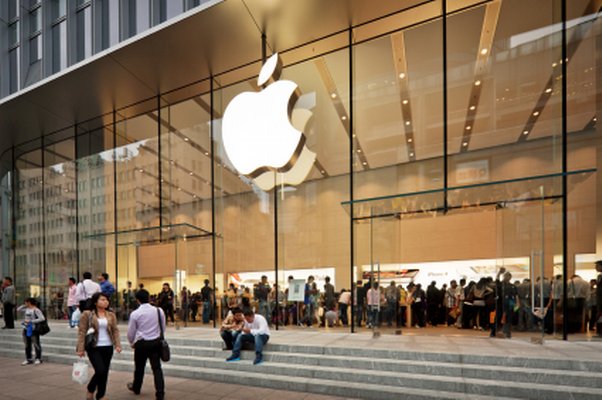When Apple unveiled their first iPhone six years ago, no-one really knew what it was. The BBC’s best attempt described the iPhone as, ‘essentially a computer with a blank screen that users configure so they can operate the monitor with their fingers’. While the event was significant, no-one really knew why. It was the first smartphone, made by Apple. Not only would these smartphones cost a pretty penny, they would go on to change our habits and revolutionize the way we use mobile technology and consume digital media.
It came as no surprise then that in the year between 2007 and 2008 Apple’s share price doubled, from around $85 to $200, respectively. The financial crisis, like it did to most companies, tapered growth in 2008. But in 2009, Apple emerged from the storm and the company went on a path of unhindered growth for almost four years. In September 2012, shares in Apple Inc. peaked at a staggering $700, more than 7 times their 2009 value.

Then came the news last month that for the first time in a decade, Apple would report that its income this quarter would be lower than the quarter of the year before. The first significant sign that the darlings of Wall Street were no longer being propelled by the hype of innovation, Apple’s share price has since continued to slide. Currently, teetering at around $430, shares at Apple Inc. have lost around 40% of their value in the space of six months.
While the technological world may be surprised by all of this, the fact that we live in a capitalist system today is testament to the necessary logic that fierce competition is inevitable, even for seemingly impenetrable companies like Apple. Paradigms do change and in a technological world where computing power doubles each year, things change fast.
In the space of a few years, the Android OS has swallowed up two thirds of the mobile market. It’s taken a big bite from the Apple iPhone and more recently, with the incredibly popular Nexus 7, another huge bite from Apple’s dominance in the tablet market.
For consumers, one of the perks of choosing Android is the ability to tailor a particular device to particular needs while with Apple’s iOS, it’s the iPhone, the iPad, or nothing, Android is open source and highly customizable. Most importantly it is free, meaning manufacturers can push the costs of their devices down, to a price more attractive than their Apple counterparts.
All of these developments have culminated in the idea that Apple could become the next Microsoft, that wheezing behemoth of PC’s and C drives. Microsoft’s own foray into the mobile market, with the release of their Windows Phone 8 resulted in a meager 3% share of the mobile market in the most recent quarterly sales. Not much for a company that once had one operating system to rule them all.
It seems then that once the crest of the wave has fallen, it is nigh impossible for technology companies to pick up the pieces and begin to rebuild. If Apple’s foundations do begin to crumble, perhaps the necessary logic of competition will bury them after all.
Freelance writer Erin Warbrook loves writing and researching new technologies and business advancements. As a main contributor and moderator at presswire.com.au, she is able to share her passions and interests on Australia’s newest source of news & entertainment.